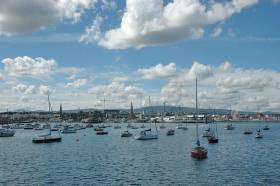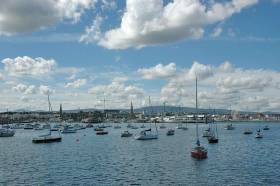Displaying items by tag: DLCC
#CruiseBerth - Afloat.ie has learned that the Dun Laoghaire Combined Clubs (DLCC) will not seek a judicial review of An Bord Pleanála’s approval of a scaled-down cruise berth for Dun Laoghaire Harbour.
DLCC members, who welcomed the 250m limit on the proposed cruise liner berth, recently met to discuss the planning decision and whether a review was warranted based on interpreted material changes to the permission sought, based on objections or suggestions from DLCC and others.
However, it was agreed not to launch a joint appeal for reasons of cost, and that the reduced maximum scale of the cruise berth changes its commerciality such that may never proceed.
However, the joint decision does not prevent any of DLCC’s constituent yacht clubs or individuals from seeking judicial review before the deadline of Wednesday 28 December, three weeks from today.
Meanwhile, DLCC members are seeking contributions to cover a shortfall associated with the extended oral hearing over the cruise berth proposals.
#DunLaoghaire - The Dun Laoghaire Combined Clubs will hold a fundraising day next week to help cover costs associated with last year's oral hearing over the proposed harbour terminal for cruise liners.
Harbour Heritage Day on Thursday 16 June aims to "galvanise the sailors to show solidarity and not only to contribute but to underwrite the €48,000 needed to clear our debt", according to a letter to members from the National Yacht Club.
Boat owners are encourage to arrange collection from their crews, and voluntary donations can be made directly via bank transfer (contact the club for details via nyc.ie).
No decision has yet been made on the controversial Dun Laoghaire Harbour cruise berth proposals after An Bord Pleanála deferred its ruling in January, as previously reported on Afloat.ie.






























































